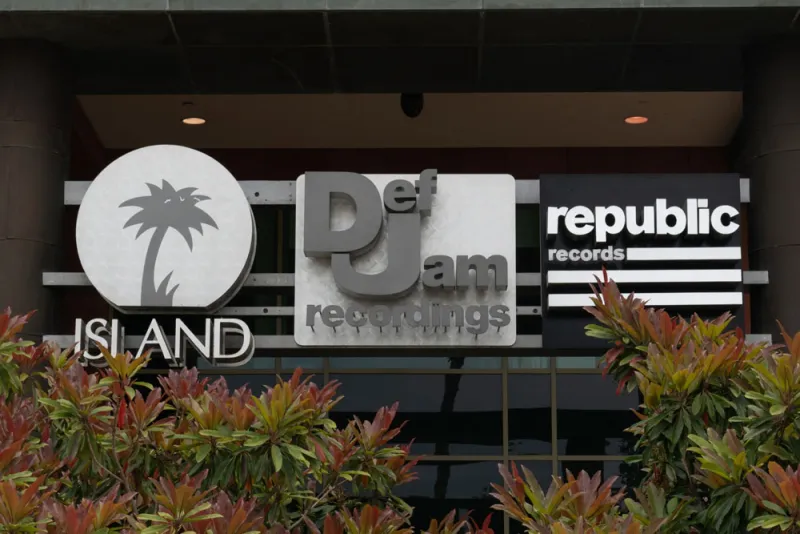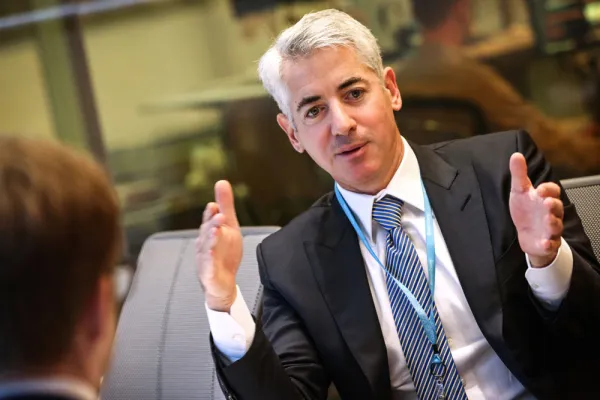The Securities and Exchange Commission has killed Bill Ackman’s special purpose acquisition company’s complicated plan to invest in Universal Music Group.
On Monday, his SPAC, Pershing Square Tontine Holdings, said in a letter to investors that it was pulling the deal because of “issues raised by the SEC with several elements of the proposed transaction — in particular, whether the structure of our IBC” — initial business combination — “qualified under the NYSE rules.”
As a result, Tontine’s board voted Sunday, in a unanimous decision, to abandon the deal, Ackman said.
“It was a dagger in the heart,” Ackman told CNBC Monday morning.
The hedge fund manager said his Pershing Square Holdings hedge fund would make the investment instead, and that the SPAC — which raised $4 billion in an IPO about a year ago — would look for another partner to do a more conventional merger. Under SPAC rules, it still has 18 months to close a deal, he said.
“Back to square one” is what one disgruntled retail investor said, in response to the decision.
The deal is just the latest setback for investors who’ve already lost money by investing in Tontine earlier this year, when SPACs were hot and the stock was soaring.
Tontine has fallen about 19 percent since announcing that it would take a 10 percent stake in Universal Music Group when it is spun off from Vivendi in an IPO, instead of doing a traditional merger with a private company.
The SPAC would also have had money left over to do another deal in what it called “Remainco.” To sweeten the pot, it promised investors that stuck with Tontine the first shot at a new form of SPAC, which Ackman christened SPARC, that would not require investors to provide money upfront.
The deal was so complex that investors and their brokerage firms struggled to figure out how it would work, especially given the warrants that were attached to the stock, and the options that were trading on its future prospects.
Ackman had designed his SPAC for long-term holders, but the Reddit community of retail investors got excited about the deal and now comprise about a third of the shareholder base.
Monday morning the hedge fund manager went on CNBC to explain his decision and said that “a lot of shorter-term investors came in who were levered and bought options.”
“We announced a deal that is very bad if you are levered or own options,” he admitted.
The latest news is little consolation for those who gambled on options that have expired worthless, or those who bought on margin and can’t wait for the stock to recover when Ackman lands another deal.
Some investors, who have continued to hold their underwater stock positions, had grown enthusiastic about Universal’s prospects following a three-hour presentation by Pershing Square regarding the music company’s prospects.
“I’m a little disappointed,” said one such retail investor. “I liked the deal.”
They also worry about the fate of Tontine now.
“His leverage will be small after what happened,” said another retail investor. “Target companies will anticipate that his reputation is in deep waters and will put a pistol to his head.”
The SEC’s decision on the high-profile SPAC is another sign that regulators are keen on reining in what they view as abuses of SPACs, which went from boom to bust this year.
“The SEC is carefully scrutinizing every SPAC transaction,” Ackman told CNBC, pointing out that “many SPACs are merging with zero revenue companies with crazy valuations” and that “all the reasons the SEC should be focused on SPACs don’t apply here.”
The SEC’s views on Ackman’s SPAC are something of a mystery — and an about-face by regulators.
For example, while the SEC recently said it didn’t think Tontine met NYSE rules, Ackman said he had told the NYSE about the structure of the deal before going ahead with it.
Until last week, he told CNBC, “They were comfortable with the rules. SPACs don’t have to do mergers…We’re not the first SPAC to buy a minority interest in a private company.”
Indeed, the language in Tontine’s prospectus said it might simply make an investment in another company, and the SEC had signed off on that last year.
But now, he said, “unfortunately the SEC chose to shut down this transaction.”
“I moved heaven and earth to make that happen until the government put its foot down and said no,” he continued. “We lost a year.”
“If you are a Tontine shareholder and you wanted this deal, you should call the SEC and complain,” he added.
Ackman declined to comment on the regulatory issues beyond what he told CNBC.
But even with all the drama, Tontine’s stock, which goes by the ticker PSTH, was still trading slightly above its $20 IPO price on Monday afternoon. Many other SPACs that have yet to announce a deal, or have simply not consummated one, have fallen below their listing prices.







